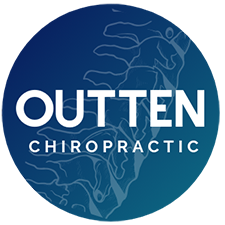
919-467-3362
Why Does My Jaw Hurt?
You may have a TMJ problem! If you place your fingers in front of either ear and wiggle your jaw you'll feel an opening that changes shape beneath your fingers. That opening is situated at the joint where the temporal bone of your skull attaches to your jaw (or mandible), which is called the temporo-mandibular joint or TMJ. This joint connects our jaw to our head, with ligaments, muscles, nerves, blood vessels, and many other kinds of tissues running in, around and through the area.
TMJ Dysfunction or TMJ Disorder (also called simply TMJ) is a condition that occurs when the TM joint is misaligned or malfunctioning in some way that subjects it to excess pressure.
The symptoms of TMJ dysfunction are many and varied. Among the most common are the inability to open the mouth wide and a clicking or popping sound that is heard when the mouth opens and closes. In some cases the jaw actually locks into one position and is temporarily unable to move.
Other symptoms of TMJ are more severe and debilitating headaches; loss of hearing; tinnitis( ringing in the ears ); the sensation of an object in the throat; facial swelling; shoulder, cheek, or jaw joint pain; neckache; pain in or under the ear; tooth pain; migraine; nausea; blurred vision; and dizziness.
According to the American Dental Association, approximately 60 million people in the U.S. are affected by TMJ dysfunction. TMJ affects more women than men, with high stress "superwomen" being more prone than other women.
TMJ may be caused by trauma of many kinds, not only those directly affecting the head and jaw and not only those of recent origin:
A child may fall on her bottom and in time, through the adaptive body mechanics, the pelvic imbalance will ultimately affect the rest of the spine and therefore affecting the jaw, head, and neck.
Pain and spasm of the neck have been shown to cause symptoms that mimic TMJ dysfunction, among them facial pain, spasm, and inflammation of the face.
"Jawlash" is whiplash of the jaw. It refers to head and jaw injuries caused by automobile accidents; sport injuries; falls or direct trauma to the face.
Some of the standard medical/ dental approaches to TMJ and related conditions are muscle relaxers; pain killers; oral appliances; such as a night guard to control grinding of the teeth; heat massage; and a soft diet to ease the pain of chewing. Biofeedback or psychological counseling is used to combat stress and anxiety, which appear to affect TMJ pain. Other treatments are orthodontics; restorative dentistry to build up the bite; bite plates; and physical therapy. According to Dr. Gerald Smith, a specialist in the field of structural dentistry, dental work - especially improperly fitting braces or orthodontia- is the cause of many TMJ problems. According to Dr. Daryl Curl, who holds degrees in both dentistry and chiropractic: Unless the othotic is ideally constructed, the orthotic itself may contribute to or exacerbate the patients condition.
In severe cases surgery has been performed to enter the joint and end the discomfort, yet this drastic step should be taken only after more conservative approaches have failed. According to Gerald Smith, DDS: Surgery should not be done until chiropractic and proper dental support is provided prior to surgery with exception to a tumor, fracture, or serious joint pathology.
How can chiropractic care help with a TMJ condition? A chiropractic physician looks at your overall health - focusing not only on your jaw but also on your lifestyle. This total approach to wellness helps determine the best treatment for the problem.
To help find the cause of your jaw pain , your chiropractor discusses your symptoms, any prior injuries, your health history, and your lifestyle, including sleeping positions, posture, and stress levels.
Physical, orthopedic and neurological tests can help reveal the condition of your jaw and upper spine. The chiropractor gently touches and moves your jaw to check for tenderness, pain, and restricted motion. As "blue prints" of your bones, x-rays can help reveal misaligned bones, arthritis, or other causes of jaw pain. Other tests may be done, if needed.
Considering the results of your exam and tests, a chiropractor will recommend a treatment program to reduce pain and improve range of motion in your jaw. If needed, your chiropractor also consults with or refers you to a dentist or other medical specialist.
A chiropractor is trained to restore the health of your spine and joints. Special chiropractic methods called adjustments, help improve range of motion in your jaw and relieve the pain. A chiropractor may suggest other types of treatment to reduce the pain and restore smooth motion in the jaw. These may include ultrasound, heat or ice, massage, or jaw exercises.
Just as you need regular dental checkups, you also need regular chiropractic checkups. Chiropractic care is one of the best ways to manage or prevent jaw and other joint problems and maintain a healthier life.
Any questions on TMJ disorders and/or chiropractic care please call 919-467-3362.
Yours in health,
Christopher R. Outten, D.C.